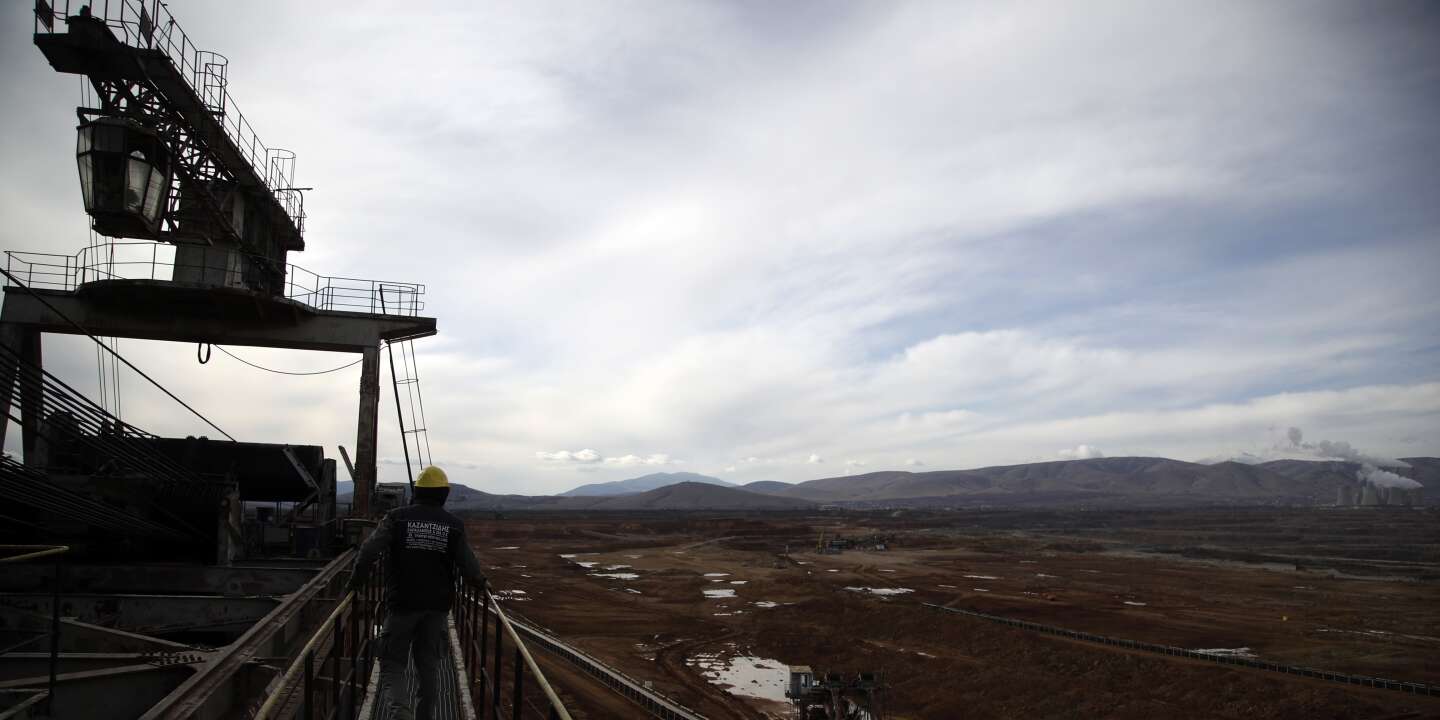

“Greece’s energy policy must be flexible, we must take into account the current situation”, Greek Prime Minister Kyriakos Mitsotakis assured during the inauguration on Wednesday, April 6, in northern Greece, of a 204 megawatt (MW) photovoltaic park, one of the largest units of renewable energy sources in Europe. In addition to deploying solar panels and wind turbines across the country, he announced that lignite plants, a depleted form of highly polluting coal, will close not in 2023 as initially planned by his government, but in 2028.
Production will even double over the next two years. This trend is already underway: lignite now accounts for 19.83% of total electricity production, compared to an average of 7% a month ago, while renewable energy accounts for 21%.
The increase in lignite production is “a temporary and necessary measure”, insists government spokesman Yiannis Economou. Since the beginning of the Russian invasion of Ukraine on February 24, Athens, which depends on 40% of Russian gas and 25% of Russian oil, has sought to diversify its supply and curb rising energy prices. In one year, the price of natural gas in Greece has risen by 78.5% and that of electricity by 71.4%, and despite the granting of social aid totaling 1.1 billion euros for low-income earners, the dissatisfaction of the population.
“Admission of Failure”
As a first step, the government decided to develop a liquefied natural gas terminal for the city of Alexandroupolis, not far from the Turkish land border, to restart gas exploration in the Ionian Sea and off the coast of Crete, as well as the EastMed pipeline project that will offshore natural gas fields off the coast of Israel and Cyprus to Greece.
But the choice to actively restart lignite production, after having reduced it, has led to a lot of criticism. For the main left-wing opposition party, Syriza, the government has issued a “a false energy and climate plan badly programmed”, Making Greece dependent on Russian gas by wanting to cut lignite production without a viable alternative plan. For the Movement for Change (Kinal, centre-left coalition) it is simply a “Confession of Failure”.
Indeed, the Conservative government has committed to moving about 30% of the electricity currently produced from renewables to 67% by 2030, and phasing out electricity production by 2028 by burning lignite. Of the 31 billion euros allocated to Greece as part of the European recovery plan after the crisis caused by Covid-19, the government says about 38% should be spent on the fight against global warming.
Renewable Energy Priority
“There had to be a war that increased gas prices tenfold to make lignite temporarily cheaper,” he said. justified the Prime Minister. But ” never “ these changes will not affect Greece’s announced target to reduce greenhouse gas emissions by 55% by 2030 and achieve climate neutrality by 2050, he added.
Sandy Fameliari, responsible for climate change issues for the NGO Greenpeace in Greece, has doubts: “It is a big step back and it is incomprehensible, even though the government is currently trying to put out the fire because gas prices have skyrocketed. “The cost of energy from renewable energy sources remains the lowest and most stable. The choice for lignite in times of climate emergency is unjustifiable and it is not what the Greeks want.” the researcher continues. According to a survey by the NGO of 1,241 Greeks, 60% believe that given the current energy crisis, the government should prioritize the development of renewable energy sources.



